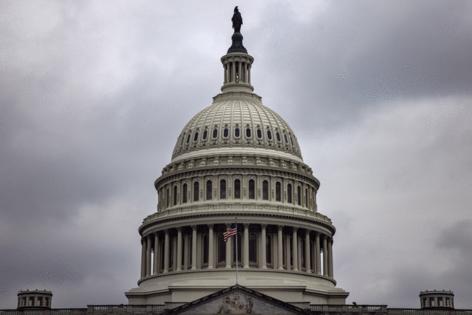Commentary: Authentic advocacy in a culture of disruption
Published in Op Eds
Every new administration, in its own way, brings about change. However, the new administration, elected in part on the promise of disrupting the status quo, is moving swiftly to make sweeping and consequential changes to federal agencies and programs.
These changes — whether through restructuring, cuts, or complete overhauls — have left stakeholders in a kind of paralysis, uncertain about how best to respond and advocate for their priorities.
For a long time, whether through grassroots campaigns, grasstops advocacy, or astroturf efforts, advocates for specific federal programs and agencies have primarily targeted a narrow group of decision-makers in Washington. However, insufficient attention has been paid to engaging the broader public, who are often unaware of the impact of these programs on their daily lives and communities.
Furthermore, the incentives of our current political environment have encouraged the last several administrations to bypass or ignore Congressional oversight, consolidating policymaking and fiscal policy through executive actions. At the same time, a few vocal members of Congress seem focused on social media trends and media appearances, rather than upholding the checks and balances essential to effective governance.
Stakeholders and advocates must acknowledge that voters inherently harbor skepticism toward federal programs and agencies. This skepticism, compounded by a lack of information about how specific programs impact individuals or communities, makes the electorate susceptible to oversimplified talking points and misleading narratives. As a result, advocates are caught flat-footed in a fast-moving, disruptive policy environment, where understanding and engagement are more critical than ever.
So, what can advocates do in this culture of disruption and skepticism? The answer is simple: authenticity. This is not the time for robocalls or mass email campaigns that policymakers can easily dismiss. Nor is it a time for trade associations to send letters claiming that all government funding is equally important. These tactics are inauthentic and predictable — exactly what those pushing for disruptive change are counting on. Instead, we need authentic, relatable stories from those who are directly impacted by these changes.
It’s the LinkedIn article from a former NGO employee, explaining the value of "soft power," the op-ed by a doctor who can no longer access crucial information because of website cuts, or the Instagram reel by a dean’s list law student whose fellowship offer was rescinded. These are the kinds of efforts that resonate — stories that bring a human face to the issues and demonstrate their real-world impact.
Advocates and stakeholders must rebuild the muscles they’ve let atrophy. Namely, the ability to genuinely engage and inform a broader audience about the positive impacts and benefits of the programs they support. In a moment of disruption, this is not just a necessity; it’s an opportunity to shape the public narrative and protect the funding and programs you care about.
At the Congressional Management Foundation (CMF), we consider ourselves the premier bipartisan organization working to create an effective and responsive Congress that serves the American people. We work directly with members of Congress and staff to enhance their operations and interactions with constituents. And we work directly with citizen groups to educate them on how Congress works, giving them a stronger voice in policy outcomes. I encourage those in the advocacy space to consider supporting or partnering with CMF in our efforts to improve how Congress engages with constituents and enhance the effectiveness of policy outcomes through thoughtful and impactful advocacy.
When I speak to groups visiting Washington, D.C., I often remind them, ‘You get the government you elect, not the government you deserve.’ Congress responds to the will of the American people, and at a time when more everyday Americans are engaged in the political process than ever before, those practicing thoughtful and authentic advocacy are primed to make a real impact to get the government they deserve.
____
Jen Daulby is the CEO of Congressional Management Foundation.
_____
©2025 The Fulcrum. Visit at thefulcrum.us. Distributed by Tribune Content Agency, LLC.




























































Comments